News
03 January 2019 - “Montenegro continued to ensure a good level of cooperation with the European Court of Human Rights in Strasburg, but improvements are still needed regarding the application of the Court standards in daily practices,” said the EU Ambassador in Montenegro Aivo Orav at the regional conference "The obligation to execute decisions of the European Court of Human Rights", organised by the European Union and the Council of Europe in Podgorica.
"The government continues to conclude friendly settlements in cases related to the length of the proceedings and non-enforcement of domestic decisions. The overall awareness of institutions and the judiciary of the rights protected by the European Convention on Human Rights are increasing. However, improvements are still needed regarding the application of the Court standards in daily practices. Ineffective investigations do not only undermine the effective and the independent rule of law system, but they also endanger people’s lives,” emphasised Ambassador Orav.
Montenegrin officials are proud of the results of Montenegro in this area. Minister of Justice Mr. Zoran Pažin said that Montenegro, the leader among European countries when it comes to the implementation of verdicts of the European Courts for Human Rights.
"Montenegro can be a good example for other member states of the Council of Europe. We should continue with that approach, but we must be aware that the most important thing is the development of national institutions for the protection of human rights and freedom," Minister Pažin said.
Valentina Pavličić, Representative of Montenegro before the European Court for Human Rights, reminded that the implementation of verdicts of the Court in Strasburg is under the supervision of the Committee of Ministers of Council of Europe. Beside diplomatic pressure, this body does not have other effective measures to oblige member states to implement verdicts.
“Because of that, democratic maturity of a country is reflected in its willingness to fulfil the obligations defined by the Convention, regardless of aggravating circumstances. As a representative in charge of implementation of European Court verdicts, I can say that the success in that matter depends to a great extent on the willingness of state institutions to proceed with their obligations in this area. The experience of Montenegro is very positive, and we have reasons to be proud,” said Pavličić.
According to the number of applications before the European Court of Human Rights about the number of inhabitants, Montenegro was among the first five countries last year. According to the Council of Europe’s data, the citizens of Montenegro mostly complained about the violation of the right to trial within a reasonable time, as is the case with applications from most European countries.
Copyrights: Press and information team of the Delegation of the EU to Montenegro
03 February 2019 - The brand new gem of Montenegro ski resorts - Kolašin 1600, located in the southern part of the Bjelasica Mountain, will be officially opened on February 16, said the director of the resort, Saša Jeknić.
With an area of about 27,19 hectares, the new resort base village consists of the central zone with hotels, apartments, reception and public facilities and all the usual ski resort content. Situated, as the name suggests, 1.600 meters above sea level, the 50 million EUR project features 4,6 kilometres of ski slopes.
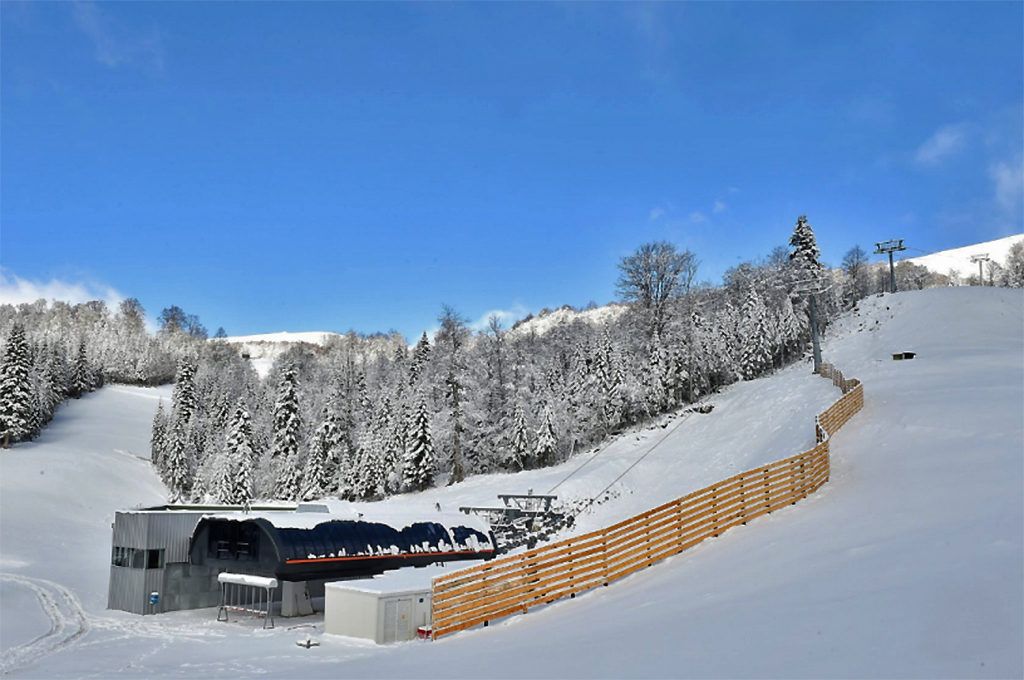
According to the developers, Kolašin 1600 will operate one 400 seat restaurant for this inaugural season, along with a planned ski school. The 1600 resort will supposedly operate a six-seat lift with a total capacity of 2.800 skiers per hour to deliver skiers from the base lodge to 2.070 meters of altitude.
"What we can safely say now is that the ski centre will officially be opened on February 16. From the moment we open the ski centre, the entire resort will be operational. For now, there is a child ski lift, ski rental, ski school and the restaurant Troglav, "Jeknić told the Mina-business agency.
He said that they are currently in the process of testing a six-seat cable car and that a final test is scheduled for Tuesday. "The necessary documentation and paperwork still awaits the final approval, so we hope that by the end of the next week, it is possible to put the wire in function," Jeknić added.
He reminded that the Kolašin 1600 ski resort started operating on December 29th and that total investment so far amount to 16 million EUR.
"Niksic follows Cetinje. They do not let them be decorated with laurels! That is how it should be," published the "Voice of Montenegro" in the edition of 19th February 1884. Three days earlier in the city under Trebjesa, the theatrical performance “Slobodarka” by Manojlo Đorđević Prizrenac took place.
On February 16th this year, Niksic Theater, which is the oldest theater in Montenegro apart from the Zetski dom, marks 135 years of existence. In addition to the war and peace destruction, extinction and re-establishment, the theatre stage boards tell the story of the duration, the ups and downs, the culture and the link between the three centuries.
In 1884, the society of Niksic readers decided to establish the Theater Company and for the first performance they chose "Slobodarka", which was performed in front of a fully booked hall, and before the play, Bekica Šobajić spoke about the significance of the opening of the theater, "first behind the first one in Cetinje".
King Nikola, half a year later, wanted to see this play, but his desire was not fulfilled, because some "dilettantes", as they called actors, were absent. In four years of existence, after the Theater Company lost its work due to the lack of room for the rehearsals and performances, in 1890 ceased with work, plays "Krst and Kruna" by Jovan Subotic, "Death of Stevan Dečanski" and "Miloš Obilić" by Jovan Sterije Popović and "Balkan Carica" by Nikola I, Gogol’s "The Government Inspector", which was performed at the school hall in 1891, the Company resumed with work.
The revenues from the performance were sent to the City Library, as well as the incomes from the play "Tri Bekrije", which was performed in March 1896. In December of that same year, comedies "Congratulations" and "Gypsy" were played, and money was directed to the victims of the floods in Crmnica and Ulcinj, while the drama "Dejan" was performed next year. By founding of the singing company "Zahumlje" in 1898, the Theater Company, which until then worked alone, was abolished and continued with its work within "Zahumlje". There were some theatrical performances, the chronologists recorded about the "impressive acting skills" shown.
The First World War breaks down the theater life in Niksic because most actors fron "Zahumlje" go to the front. After the war, the construction of the Craftsman's Workers' Association began, which was completed in 1925 when a drama section was established, led by a famous drama artist and director of Novi Sad Theater Mihailo Kovačević. He opened the House in August 1925 with the play "Maksim Crnojević" by Laza Kostić, in which Kovačević interpreted the main role. Three years later, the City Theater was established, and the director Milutin Plamenac was appointed as administrator. And as it is usually the case with the theater life in Niksic, ten years later, it ceased with work and all the assets, worth ten thousand dinars, were donated to "Zahumlje"
After the Second World War, in 1949, by the decision of the National Committee in Niksic, a National Theater was established, which was assigned to the Chamber of the former Craftsmen's Workers' Association. Veljko Šakotić was appointed as administrator and actor Veljko Mandić as secretary. For two years, members of the theater have voluntarily raised an auxiliary building with two studios, wardrobes, workshops and warehouses.
The first performance was made by the members of the theater on June 4th, 1949. It was 'Nemirna starost' of Rahmanjiv, directed by Radoje Gojković. Since the city was almost doubled, the theater had to be renovated and the work was entrusted to famous architects Djordje Minjević in 1953, who, together with Josip Slade, King Nikola and Slobodan Vukajlović, were the most important for building a modern city. Everything was then replaced and a balcony with 450 seats was built, which was also intended for theater and cinema performances.
In that hall on August 14th in 1961, the citizens saw black people for the first time when singers performed folk songs, the ensemble "Black Trio".
That the theater was a “Small Yugoslavia” says the fact that actors such as Raša Plaović, Milivoje Živanović, Ljubiša Jovanović, Olivera Marković appeared on the scene as guests of the National Theater. The world-famous Russian ballerina Maja Pliseckaj was also a guest. It is interesting that Savo Njunjić (1891-1962) doyenne of the Montenegrin acting society began his acting career in Zahumlje in Nikšić 1901 when he became a member of the Tambura Choir. Later, in the drama section, he developed his acting talent to professionalism - he appeared in 1909 for the first time and retired in Niksic Theater in 1953. Following the liberation of Niksic, he was an actor of the newly established National Theater and acted in 30 plays. He has played in the movie "Zle pare," which was shot in 1956.
The children's theater, the first of its kind in Montenegro after the Second World War, was founded in 1956.
For 16 years, the National Theater had 116 premieres of all genres of famous domestic and world dramaturgy. And again, that was not enough to survive. At the second session of the Council of Culture of the Republic of Montenegro, which was held in 1958 in Titograd, it is concluded that professional theaters in Niksic, Cetinje, Kotor and Pljevlja were reorganized into amateur and semi-amateur. The reason was that supposedly the number of theaters exceeded the possibilities of small media, that are in a difficult financial situation, of unequal quality, and that it would be better to have one quality theater that will meet the needs of other places. "By this decision, only directors and four actors could be engaged professionally.
Veljko Šakotić was re-appointed in the Niksic Theater, where Veljko Mandic was doing the job of a director, and this duo managed to offer more than 50 plays to citizens of Niksic, only in 1958.
The official decision to terminate the theater work, unanimously, was issued in 1965 at the June meeting of the Assembly of Niksic Municipality. Interestingly, at that time, there were 17 educators in the Assembly.
The theater building and fundus, the richest in Montenegro, had the scenes for displaying 20 plays, several sets of stylish furniture, a wide variety of costumes from various epochs, props, electric, carpenter and tailor tools, were handed over to Radnicki University.
Niksic Cultural Center founded the Drama Studio in 1980, which for ten years of work brought the theatre to the place where it belonged, prepared 17 premieres and played nearly 500 performances. But culture in the town under Trebjesa seems to have a limited duration. Although the Drama Studio was proclaimed one of the best amateur theaters in Yugoslavia, it closed down in 1991 when it was removed from its premises and when the "Culture" hall ceased to work. Instead of it, a café was opened, although the Center for Culture has been strongly urged to be restored and brought back to those who it belongs to - the actors.
By the decision of the Assembly of the Municipality Niksic, in December 1999, "Nikšic theatre" began with work and the building of the old theater, the "Culture" hall was demolished in 2008. With the renovation of the cinema building "18th September", Niksic Theatr on 30th January 2015 got its own home. From renewal to today they have had over 20 premieres, annually recording fifty performances of their own and nearly as many performances from guest theater productions. They have renewed the "International Festival of Actors" and the "Pozorište" magazine, whose first issue came out in 1956, established the "Veljko Mandić" prize, they also deal with publishing. And they last.
Text by Svetlana Mandic, on February 3rd, 2019, read more at Vijesti
Children between the ages of 4 and 11 who participated in the 3rd Mala Skalinada have completed the task, as confirmed by the parents and organizers of the Triathlon Club X Herceg Novi.
From the City Port to the Square of Nikola Đurković, 48 children succeeded, by themselves or with a little help of their parents, to master 248 steps and receive diplomas and medals.
In the category of age competitors up to four years, in first was Saša Hajduković, in second Andrija Plesničar, and third Boris Hajduković.
In the age category up to five, Ilija Butuli won, and Vanja Babović won in up to six years.
In the category up to seven years the first three places were won by Vojo Petrović, Filip Simović, Strahinja Bjelović. From 8 to 9, Todor Butuli, Dimitrije Lučić, Pavle Živanić. From 10 to 11 Srđan Lero, Miloš Bogdanović, Andrija Pop. In the category of the youngest girls in ages up to four, Ema Perovic and Kristina Jovanović were the fastest, up to five years it was Katarina Pestorić, up to 6 years it was Milica Lučić, Una Marčeta and Ivana Nikolić, up to seven years it was Valentina Đorđević, Milica Pestorić and Katarina Ćurić, up to 9 years it was Bjanka Bulajić, Nađa Živanović and Petra Sucevic, and in the category of 10 to 11 years it was Vjera Bulajić, Anita Kojić and Maša Vasic.
Text by Slavica Kosic, on February 2nd, 2019, read more at Vijesti
The Municipality Herceg Novi published a tender in December 2018 for the open procedure for the Public Procurement of equipment and installation of underground containers. The estimated value of public procurement with VAT included is 500,000 euros.
The Local Government Administration in Herceg Novi has foreseen the construction of underground containers in the Budget for 2019, as this waste disposal system proved to be the most efficient in the European Union.
Within the procurement are 32 containers of 5 m³ volume (for wet and dry wastes), 24 containers of 2.5 m³ (for wet and dry wastes) and 30 containers of 500 l capacity.
If the tender for their procurement is completed, the underground containers should be installed by the beginning of the summer season. The installation of containers of 5 m³ and 2.5 m³ will be carried out on all locations in pairs - one for dry and one for wet waste
There are many benefits to this kind of waste collection. First of all, this is a higher degree of hygiene, easy maintenance, clean and well-regulated space around the container, and there is no scattering of garbage and spreading of unpleasant smells. It should also be known that one underground container equals as many as 6 classic containers of 1.1 m3. This means six times less fuel consumption, human resources, time, equipment, and better environmental protection. This reduces the spread of unpleasant smells and carbon dioxide.
Another significant feature of this type of container is their durability, which is estimated at 30 years and after use, they can be recycled. In addition, these containers are waterproof, they cool and compress the collected waste, which allows higher filling capacity. Most of the containers will be buried in the ground, maximum at a depth of 1.8 m. Their usage will be adjusted even for people with disabilities.
Director of "Čistoće" d.o.o Herceg Novi, Vladimir Arsić, said that he is satisfied with the way the company worked in the past year and that positive results were achieved.
As Arsić pointed out, the analysis has shown that the criteria for continuing the future work of the Utility Company is well defined, so they expect the next period to be even more successful.
"Depending on the months, the statistics are different. For the period from June to December 2018, approximately 900,000 euros have been earned on this basis, while about 500,000 euros were collected last year. In August 2017, 113,000 euros were charged, while in August 2018 this value was 194,000 euros; in September 2017, the bill amounted to 81,000, while in the same month in 2018 170,000 euros were charged. In October 2017, 74,560 was charged, while 2018 in the same month amounted to 157,304 euros by the collection of claims. So, in the last quarter of 2018, the billing is up to 120% compared to the comparative period of 2017," explains Arsić.
As for the construction of underground containers, Arsić pointed out that the original investment was not realized because the announced donation of the state and the Slovenian government was not fulfilled, but that this time funds from the Budget were provided, and that with their installation, Herceg Novi would have a new dimension of cleanliness.
Promo sadržaj, on February 1st, 2019, read more at Vijesti
February 3, 2019 - A protest of unsatisfied citizens was held on Saturday in Podgorica, which gathered around one thousand participants. The cause of the gathering is the legal, social and political scandal known as the "Koverta" (Envelope) affair, as well as the numerous criminal offenses where the public receives written evidence, audio, and video, from sources close to the top of government. Citizens have organized a protest because the state in this and similar situations does not react as required by the Constitution and the laws of the state of Montenegro.
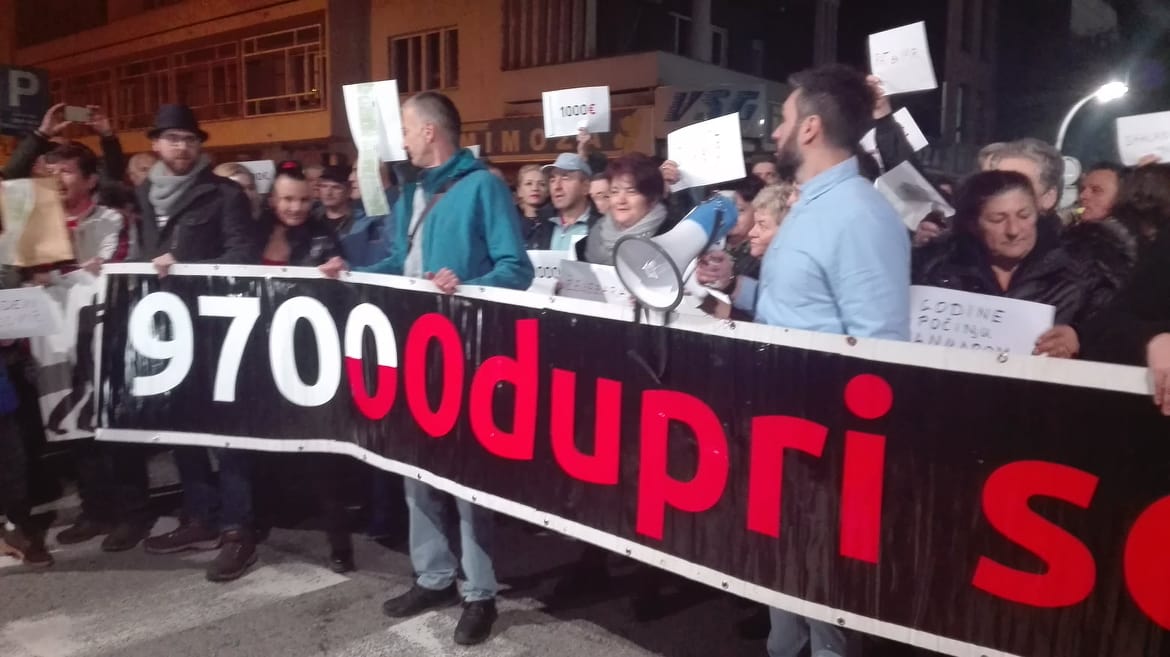 1000 Euros Envelopes- the symbolism is clear, Photo by Antonela Stjepcevic
1000 Euros Envelopes- the symbolism is clear, Photo by Antonela Stjepcevic 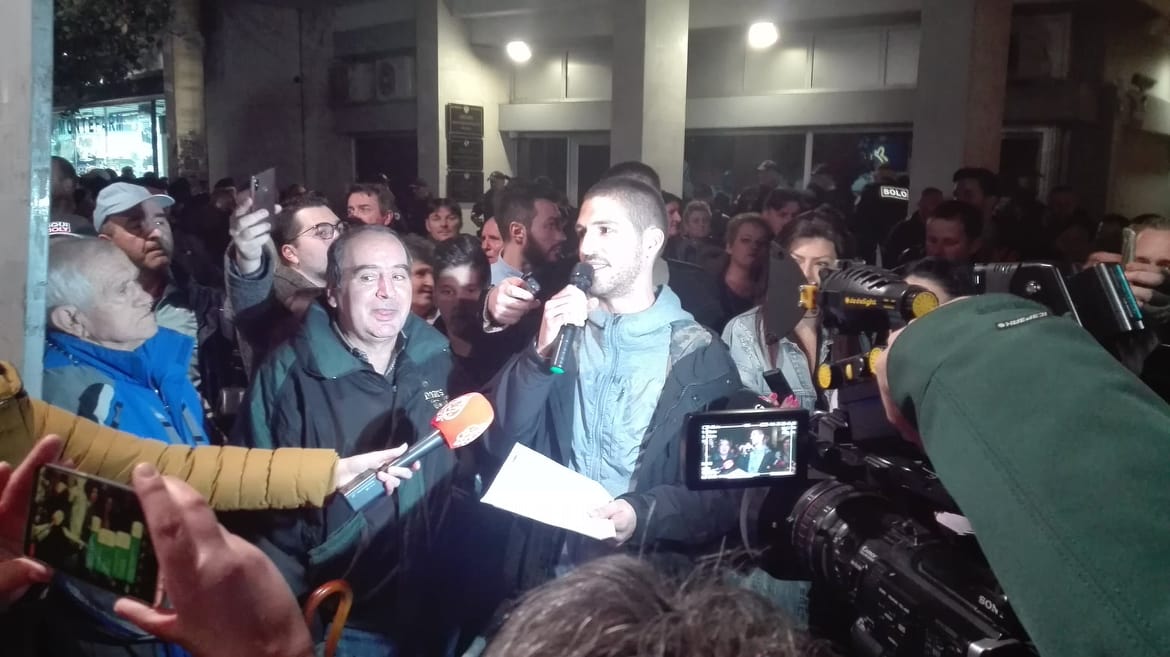 In front of organizers- Jovan Gajevic, Photo by Antonela Stjepcevic
In front of organizers- Jovan Gajevic, Photo by Antonela Stjepcevic February 3, 2019 - Kotor celebrates St. Tryphon's Day today, the day of the patron saint of Kotor and Kotor’s Diocese, whose cult has been present in this area for 1,210 years.
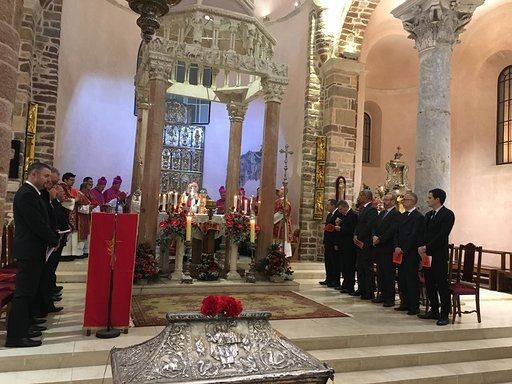 Saint Tryphon's Cathedral, Copyright: Radio Kotor
Saint Tryphon's Cathedral, Copyright: Radio Kotor February 3, 2019 - The 50. Mimosa Festival officially opened at the Feast of Mimosa Fish and Wine in Baosici, which brought together about 15,000 visitors to the Herceg Novi Riviera. The Igalo Institute hosted the first of the four planned costume balls, and visitors of Herceg Novi's jubilee edition of the Mimosa Festival in Baosici have the opportunity to enjoy the "Fragrances and Taste of February" Bazaar.
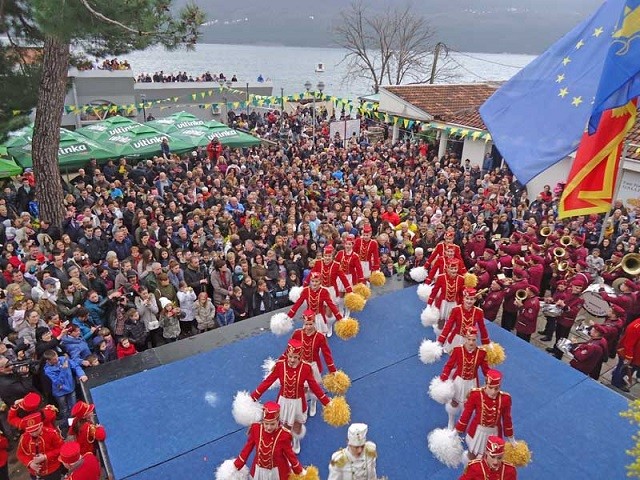 Mimosa Festival Opening Ceremony, photo by Milan Dobrilovic
Mimosa Festival Opening Ceremony, photo by Milan Dobrilovic 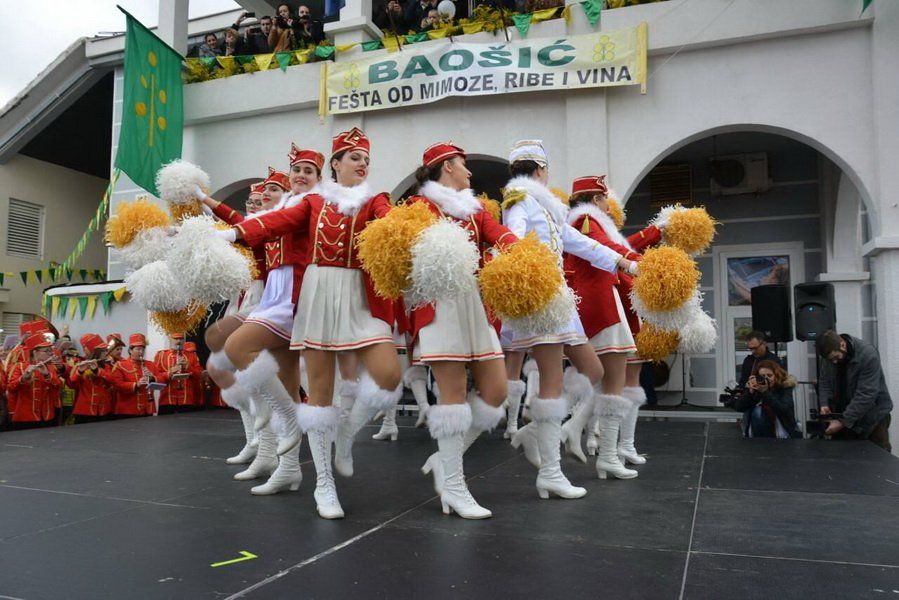 Mimosa Festival Opening Ceremony, Majorettes, photo by Milan Dobrilovic
Mimosa Festival Opening Ceremony, Majorettes, photo by Milan Dobrilovic 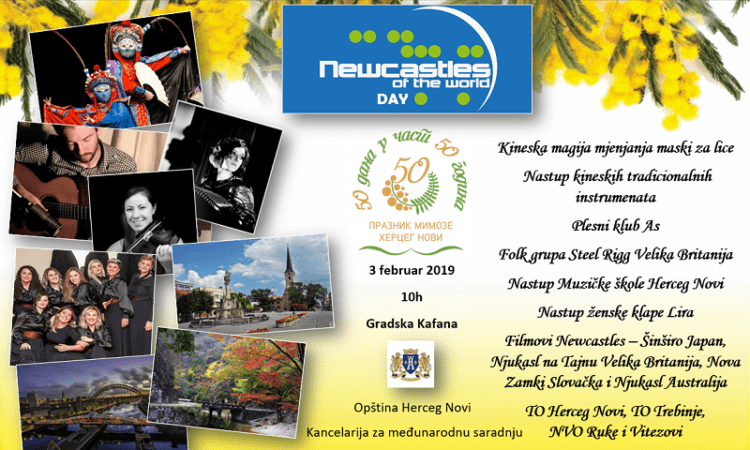 New Castle of the World
New Castle of the World 02 February 2019 - Despite its small size and sparse population (less than 700,000 inhabitants), Montenegro offers incredible diversity in its topography. Thanks to the possibility of a stunning adventure - the transition from the Adriatic coast to the mountainous region, Montenegro has recently gained the title of a tourist destination that offers a “two-for-one” trip experience.
Christina Webb, a writer for Lonely Planet – renowned travel guide book publisher, recently wrote an article on “Two-for-one trips: destinations that offer double the fun” and Montenegro has proudly taken the second place on the list! The article provides advice for all tourists who can’t decide whether to spend their holiday on a sunny beach or is their main goal to kick back and relax in the mountains. To help them with their decision, Lonely Planet writer decided to list all destinations that offer plenty of sun, picturesque coastline cities and breath-taking beaches, but at the same time, there are options for mountain lovers, like hiking, cycling, kayaking and many more – all in one country!
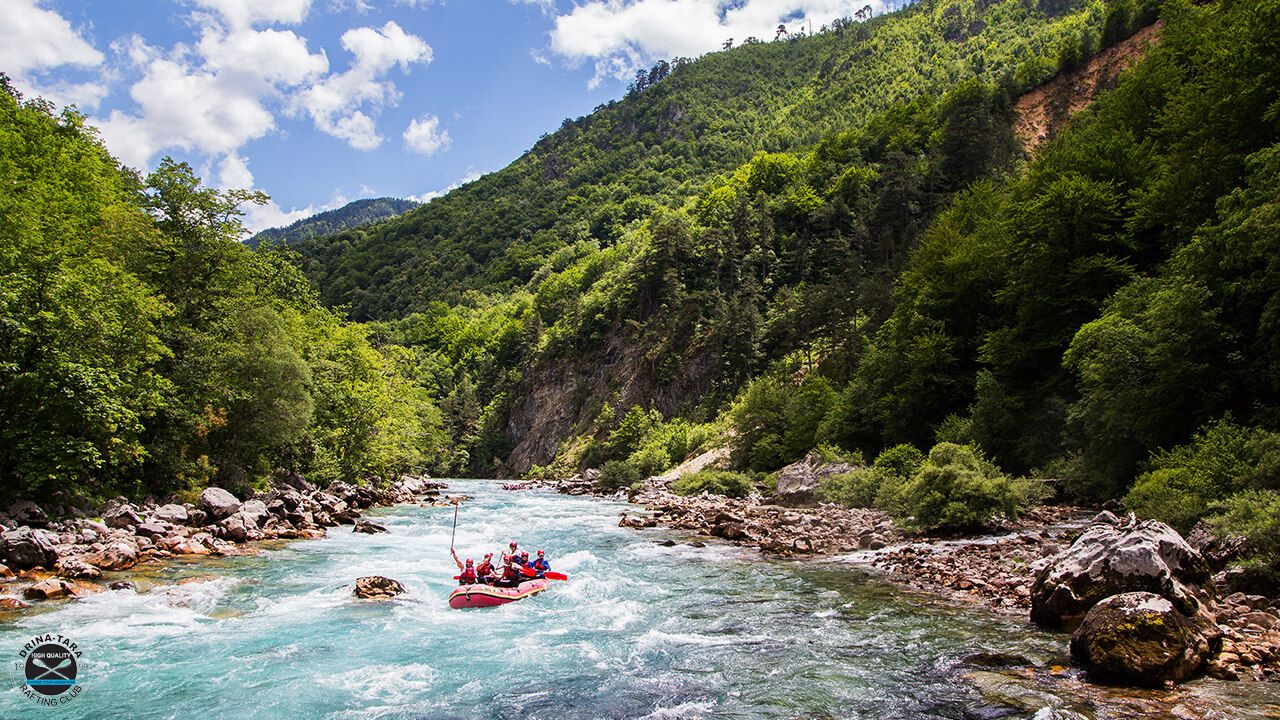
“Say goodbye to indecision," says Christina. “If you’re stuck between travel daydreams of markets or mountainscapes, spine-tingling safaris or the siren song of the sea, don’t fear. Fitting two types of trips into one might seem arduous to organise, but with the right timing, transport, and planning, it’s easily achievable,” Lonely Planet writer reports. Now it is possible to “pack diverse experiences into a region that can be explored in a typical vacation period”, you just need to choose carefully and organise ahead.
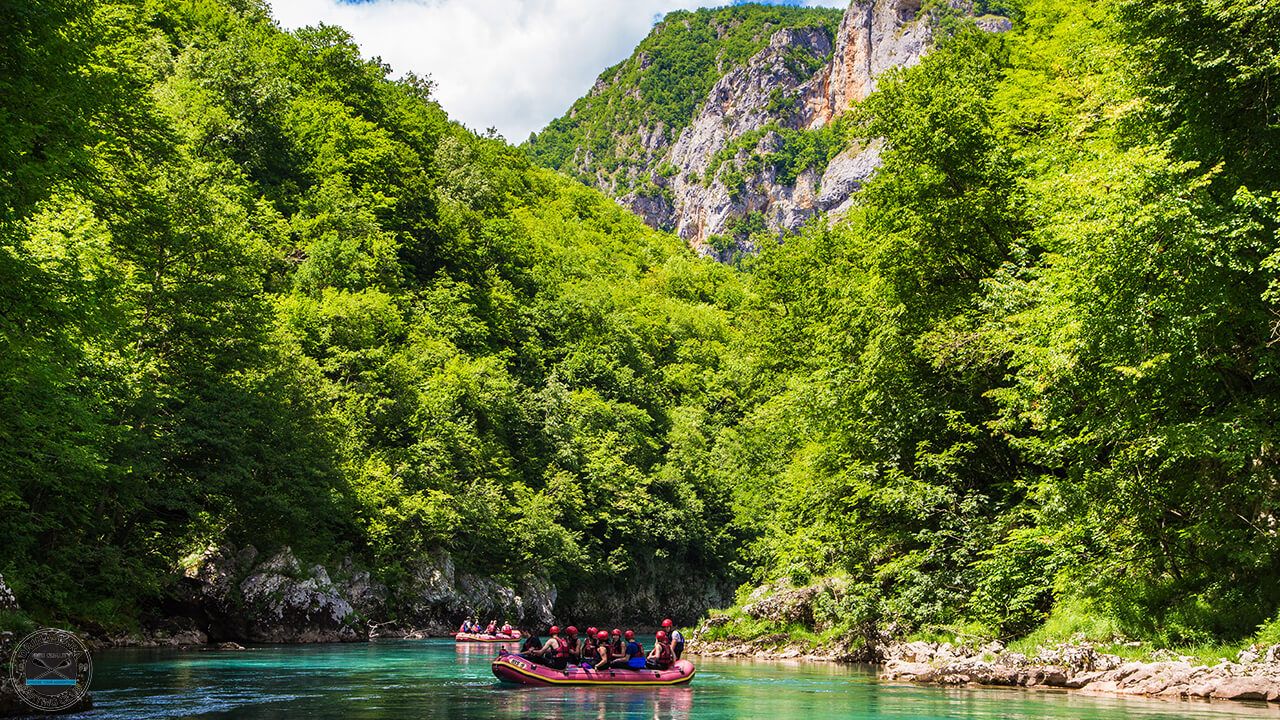
The article presents Montenegro as a country ideal for a vacation that includes rafting amid the mountains of the north and seafood and Med climes in the southern area! Follow the advice of the travel guide writer, Christina Webb, and get a holiday of a lifetime! As explained within the Lonely Planet article, “in Montenegro, rafting is synonymous with the turquoise Tara River. Arrive at Durmitor National Park and glimpse the winding river through the mountains and you’ll see why. The Black Lake by Žabljak is both dramatic and serene, as are the forests of Biogradska Gora National Park near Kolašin. Exploring both the towns and national parks over a few days is all you need before taking to the water. Most rafting takes place in Durmitor, and you’ll get the most dramatic view of the Tara Canyon’s imposing 1300m high walls from your raft.”
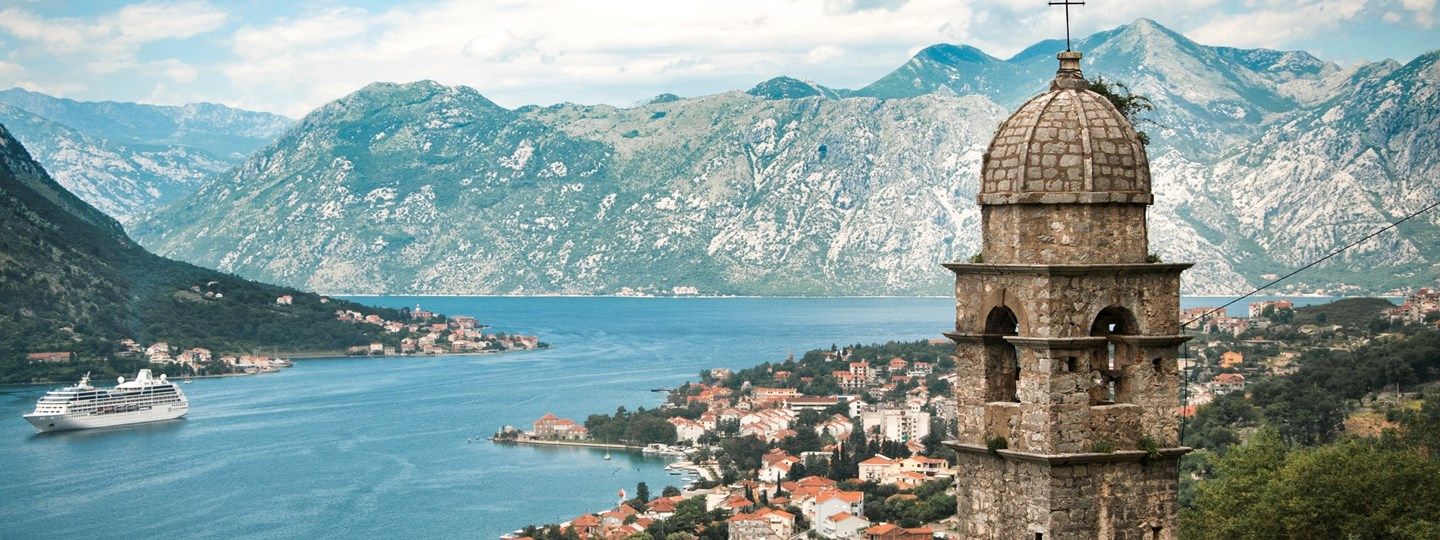
“Then, make your way down the country over a few hours; the best way to experience the changing scenery is to hire a car, but it can also be done by bus. Along the way, you’ll notice how the patterns of snow, A-framed farmhouses, and green hills will disappear as terracotta-tiled stone buildings and shimmering deep-blue water come into view. Spend a couple of nights in Kotor’s Old Town. Climb the 1300-plus steps to the top of the fortifications, meet the town’s feline population and sample grilled squid, seafood risotto and other Mediterranean culinary delights. You’ll easily be able to fit in exploring the charming villages dotted along the Bay of Kotor, Perast, Prčanj and the outskirts of Dobrota,” says Christina from Lonely Planet.
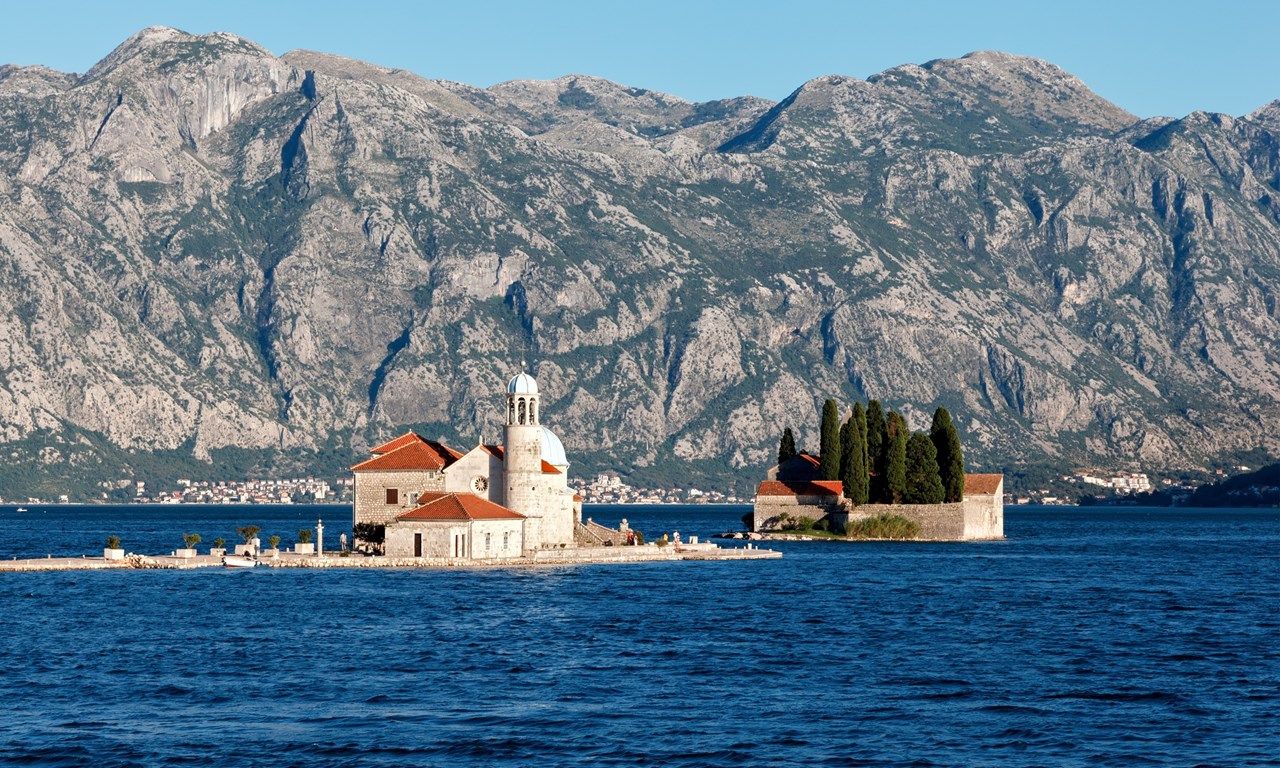
02 February 2019 - The Laboratory for milk and dairy products, located at the Biotechnical Faculty in Podgorica, is equipped with state-of-the-art equipment and will be one of the important segments in improving the raw milk quality in Montenegro.
Procuring equipment worth 400,000 EUR was supported by the EU pre-accession funds through the Project "Support to the veterinary sector". The beginning of work of the new equipment was marked by today's visit to the Laboratory by Deputy Prime Minister and Minister of Agriculture and Rural Development Milutin Simović and EU Ambassador to Montenegro Aivo Orav.
DPM Simović expressed satisfaction with the implementation of another joint and valuable project that will contribute to the further achievement of EU standards, specifically the European quality of milk, which will bring benefits to Montenegrin farmers, processors and consumers.
"I am glad that we are together at the Biotechnical Faculty today. Together – our European partners, the Government of Montenegro and the University of Montenegro. I express my gratitude to the European Commission for its significant support for the purchase of new equipment. Modern equipment will further strengthen the technical capacities of the laboratory, the analysis of samples will be more precise and reliable for both farmers and dairies, and consumers will be provided with safer and more quality dairy products," DPM Simović said.
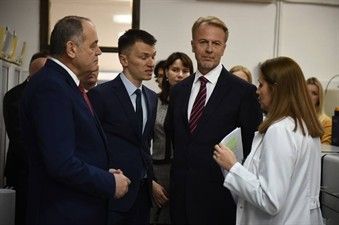
The Deputy Prime Minister emphasised that numerous support measures will be provided in this year's Agro Budget, adding that particularly significant support is non-refundable support to primary production and processing through the implementation of a large IPARD.
"I am sure that together, with valuable and responsible work, we will achieve the set goal and we will achieve European quality standards for milk for the benefit of both farmers and processors and consumers," DPM Simović said.
EU Ambassador to Montenegro Aivo Orav said that the Laboratory represents the latest technology for analysing raw milk and fully meets the standards required by the European Union.
"I am glad to say that with this equipment, the Montenegrin milk laboratory does not differ from any laboratory of its kind in the EU member states," the Ambassador stressed.
He said that the analysis of the quality of raw milk is necessary in order to ensure that farmers produce the best quality milk, from which high quality dairy products will be produced. He added that analyses are important to exclude risks to human health, but also to ensure the health and well-being of animals.
Ambassador Orav said that the EU is Montenegro's most important partner when it comes to reforming the veterinary sector. He reminded that today's donation is part of the EU's greater support to the Montenegrin veterinary sector, with a total value of 2.3 million EUR.
"In addition to joint efforts to improve the quality of raw milk, we support Montenegro to reach EU standards related to veterinary control systems, animal health and welfare, eradicating the rabies and improving the control of stray and abandoned dogs," Ambassador Orav highlighted.
02 February 2019 - Prime Minister Duško Marković hosted former Presidents and Prime Ministers of the countries of our region gathered in the newly formed Podgorica Club and expressed the full support of the Government, to the work of this entity and its further activities to promote the region's prospects, its European integration, and to affirm the policy of good neighborly relations and cooperation.
"The Podgorica Club project is a good project, needed by our region and as an idea and as a vision that can further bring us together and encourage us," Prime Minister stressed. He assessed that it's logical to name the initiative by the capital of our country, which has passed through the process of achieving strategic priorities in the past two decades while preserving good relations with everyone.
"In that matter, Montenegro had serious challenges, but it did not lose a single friend and gained a lot of new ones," Duško Marković noted. The Prime Minister thanked the members of the Podgorica Club for the assistance they provided as the highest state officials to Montenegro during the process of restoring independence, and our European and Euro-Atlantic integrations.
"I see your experience and this format as a potential for gathering people in our region who will seriously think about our common future," Prime Minister Marković said.
Members of the Podgorica Club presented the Prime Minister a program of future work on creating a new narrative and a new vision of our region, stressing that as members of the Club outside of the daily politics, and from this position, they see the possibility of action in the areas of promoting economic, scientific and other cooperation.
Former President of Montenegro Filip Vujanović, former President of the Republic of Macedonia Branko Crvenkovski, the Republic of Slovenia Danilo Tirk, the former Prime Ministers of the Republic of Serbia Mirko Cvetković and the Republic of Croatia Jadranka Kosor and former Chairman of the Council of Ministers of Bosnia and Herzegovina Zlatko Lagumdžija spoke with the Prime Minister Duško Marković.
The Prime Minister was informed that the Podgorica Club is also composed of former Presidents of the Republic of Slovenia Milan Kučan, the Republic of Croatia Stjepan Mesić and the Republic of Kosovo Fatmir Sejdiu, former Prime Minister of the Republic of Macedonia Hari Kostov and former President of the National Assembly of the Republic of Serbia Nataša Mićić.






